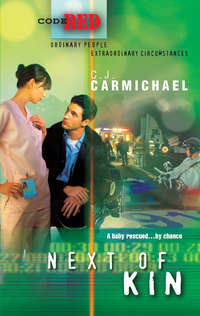
Полная версия
Together by Christmas
Her new boots squeaked in the fresh snow; the cool breeze bit at her cheeks and the tip of her nose. On foot, she noticed the poplar trees lining the driveway appeared much larger. She could hear a flock of sparrows chattering on the branches of one of them.
She stopped twenty yards from the house and took out her camera. “A typical Saskatchewan farmhouse,” she said, recording her voice along with the images. “Two stories, built from wood. Small, double-hung windows.”
Swinging the camera to the right, she centered first the barns in her viewfinder, then an equipment shed. The paint on all these buildings was in even worse shape than the paint on the house.
She turned off the power to the camera and slipped it back in its case. Smoke filtered out the plain metal chimney of the house. Peeking in one of the double-hung windows, she saw only frost. But Warren had to be in there, working, since no fresh tracks led from out his back door.
Wouldn’t it be lovely to sneak inside and get a candid shot of him at his computer?
She didn’t dare.
After again bypassing the boarded front entry, she knocked at the back. Warren had the door open in a flash. He wore jeans and bare feet. He had long toes, she noted, before lifting her head to smile.
“Right on time.” He closed out the frosty air with a firm shove on the slightly warped door.
Her professional eye approved the dark turtleneck he was wearing—the style suited his long, narrow face, and the color coordinated perfectly with his hair and thick eyelashes.
“It’s nice and warm in here. Smells yummy, too.”
“I had oatmeal and cinnamon for breakfast.”
No sign of the meal remained in the tidy kitchen. “Were you working?”
“I was.”
“Can I see?”
He shrugged. “This way.”
She dropped the duffel bag on the worn Arborite table and shrugged her jacket onto a kitchen chair. Warren led her through an arched entry into the next room. Papers covered the polished dining room table. A laptop computer hummed gently in one corner, while a violin concerto played softly from a radio on the matching buffet table against the far wall.
As Warren hung back, Miranda moved in for a closer inspection. The seemingly chaotic piles of papers were actually organized into specific areas of research, chapter outlines, character profiles. On the computer screen were lines of typing, ending with an unfinished sentence. Her arrival had definitely interrupted him.
“Just think.” She placed a hand gently on the computer. “This will be a book. Millions of people will read it.”
“If it gets published.”
“How can you doubt that? Your first novel was a phenomenon. Surely your publisher is desperate for the follow-up.”
“If by ‘follow-up’ you mean the next in the series, then you’re right. But I never intended Where It Began to be part of a trilogy or anything like that.”
“Still, you had several unanswered questions at the end.”
“The main theme was resolved. As for the dangling threads, I thought they were best left to the reader’s conjecture.”
“So we’ll never find out whether Olena leaves her husband?”
“Whether she leaves or stays isn’t really that interesting.”
“Only a man could say something like that.” Miranda let her fingers trace the keyboard. Warren had crossed his hands over his chest. Defensive about his work? Or just a usual distancing maneuver? “I think it would very much matter to your readers what Olena decides. It matters to me.”
“Why? Olena and her lover face an all-too-familiar dilemma. End their affair or end their marriages. We’ve seen both scenarios acted out so many times in real life we know what will happen in either case.”
“If you find the situation so commonplace, why write about it in the first place?”
“What interested me was how a moral, intelligent woman like Olena could end up in such a predicament.”
“I see. And what about the new book? Does it take place in your fictional town of Runnymeade, too?”
“Yes, but in a later period.”
“So there will be no connection to the characters in the first book.”
Warren smiled. “I didn’t say that.”
“Ah, you’re trying to torment me, aren’t you?” She moved away from the computer, but not before noticing he was on page 467 of his document. “Would you sit down for a moment? Let me get some footage of you at work?” She pulled out her camera.
“I’m sorry, Miranda. I can’t pose. I won’t.”
“But—”
“If you catch me at the computer sometime, I give you permission to film me while I’m writing. But I won’t fake it. Not even for you.”
Miranda wasn’t sure she understood, but she was hardly in a position to argue. She was here on his grace, after all. Eating up time that he’d undoubtedly prefer to spend on his book. Besides, he’d just granted a greater gift than he’d denied. To get a shot of him when he didn’t realize she was there would be a marvelous coup.
“Want to go for a walk? It’s snowing.”
“Already?” She put a hand to the cold window-sill. The morning’s blue sky had vanished. The forecast storm had arrived.
“We can stay inside if you’d rather.”
“Oh, no. I’m game. Can I bring my camera?”
“I guess I’d better say yes, since it seems permanently affixed to your arm.”
Miranda bundled herself back into her outerwear. Warren offered her an extra scarf, then slipped into a thick sheepskin coat and heavy-duty Gore-Tex boots.
“Since I work at a desk, I try to make sure I get my exercise. Don’t want to turn into a blob.”
Now, that was something she couldn’t imagine. Warren had always been thin. She’d noticed, though, he now had a definite muscularity. “You go to the gym, too?”
“When I’m in New York.”
He held open the back door and Miranda stepped out into swirling ice crystals.
“What about you, Miranda? What do you do to stay in shape?”
“I like walking, too.” Although she preferred graveled trails to plowing through eighteen-inch snowdrifts. She squinted against the driving snow and clutched her camera protectively.
“Here.” Warren took her free arm and tucked it next to his body.
He led the way to a path that he’d obviously walked before. A wooden gate stood open, and they passed through into an open field.
“My parents rent this land to the Hodges now. I believe they grew canola last summer.”
Miranda was adjusting to the cold. And to the wind. She didn’t mind walking close to Warren, either. It made it easier to hear when he spoke to her.
“Why did you decide to be a writer, Warren?”
“Because that’s what I am. I’ve had other jobs, though. I worked on this farm every summer when I was a boy. If my parents had had their way, I’d still be working here.”
“Aren’t they proud of what you’ve accomplished? A bestselling novel and critical acclaim….”
“It doesn’t mean that much to them, I’m afraid. Last visit I overheard Mom say to one of her neighbors, ‘His marks were always so good he could have been anything. Even a lawyer.’”
Miranda laughed. “You’re kidding.”
“No, I’m not. It’s too bad I was an only child. They might have had more success with other offspring.”
“Gosh, don’t I know that feeling. My mother has dreams of me on stage or in movies. In her mind I’m the perfect person to play Olena in the film version of your book. By the way, I’m supposed to be angling for an audition.”
“Would you like the part?” he surprised her by asking.
“You’re speaking hypothetically, of course. The answer is no. I’ve never cared for acting—I feel too silly trying to pretend I’m someone other than myself. My mother’s sure I failed at being an actress on purpose, to spite her.”
“You need to care about what she wants less. I think what you do is fascinating. Present project excluded.”
Compliments rarely flustered Miranda. For some reason, this one did. “Speaking of my present project, did you try any other jobs besides helping out on the farm?”
“I also worked at the potash mine in Esterhazy for a few months. God, that was an experience—clearing out debris from thousands of feet underground.”
Miranda shuddered sympathetically.
“And I’ve taught. I still do, from time to time.”
He was a frequent guest lecturer. Yes, she’d read that somewhere.
“But I’m most content when I’m writing. Growing up here probably had something to do with it.” He waved a hand to indicate the white, barren landscape. “With no brothers or sisters or nearby neighbors, I had to rely on my imagination and books for entertainment.”
“No TV?”
“A little.” He grinned. “Star Trek.”
“‘Aye, aye, Captain.’” She pulled off a mitten—cold be damned—and turned on her camera. Good, she managed to catch the dancing amusement in his eyes before he looked away.
“Any other early influences? Besides Star Trek?” She held her focus on him, relying on his arm to prevent her from stumbling as they continued to walk.
“Tolkien, of course. And the Russians. I especially loved Tolstoy and later, Solzhenitsyn.”
“You always had your nose in a book at school.”
“I’m surprised you noticed.”
Was that a dig? She could see no rancor in his expression and assumed he felt none. “Well, we did share the same classroom from grades one through twelve. I do wish now, though, that I’d been more observant.”
“Ah. More fodder for your biography?”
Partly, yes. But also she wondered… “I think we might have been friends. You’re so easy to talk to. I didn’t expect that at the outset of this project.”
He sighed, and she wondered if she’d said the wrong thing. Eager to get the conversation flowing again, she asked another question. “Would you say your childhood was happy?”
He glanced into the camera as if it were an annoying insect. “This is beginning to feel like a therapy session. Were you happy as a kid?”
“Yeah. Generally speaking. But the video isn’t about me.”
“I don’t care. I can’t handle all these one-sided confessions. Let’s make a deal.” He stopped and took the camera out of her hand. After a moment, he figured out how to switch it off. Then he passed it back to her.
“What deal?”
“Any question you ask me, I get to turn around on you. If I want.”
“That’s very sneaky, Warren Addison.”
“Did you know all the boys in our class had a crush on you?”
Not true. Chad hadn’t. And probably not Warren, either.
“You’re exaggerating.”
“Maybe a little,” he admitted. “But pretty damn close.”
“That’s ridiculous.”
“You’re embarrassed.” He seemed amused by the discovery.
“We aren’t meant to be discussing my love life,” she pointed out. “Why don’t you tell me something about yours?”
“What did you want to ask?”
“Is there a woman in your life right now?”
“Right now?” He stared into the distance, then glanced back at her. “No.”
“Well, what about the women in your past, then?”
“What about them?”
He wasn’t making this easy. “Warren, this is a subject we’ll have to cover. Eventually. I’d like to meet some of them, if I could. I’d like to meet with all the people who’ve been important to you. Have you ever been married?”
“No. Haven’t even lived with anyone. I’m a private guy, Miranda.”
But there had been women. And some of them had mattered. She knew these things with total certainty, although she couldn’t say how.
“Was there ever anyone special? Someone you never managed to forget…?”
Knowing Warren had been a loner, knowing how private he was, she didn’t really expect him to answer.
He surprised her, though, when he said slowly, “There was this girl….”
After giving him a few seconds to finish his sentence, she was forced to prod. “What was her name, Warren? Was she in our class?”
With the force of a magnetic attraction, her gaze was drawn to the gray of his eyes.
“Just a girl,” he said. “I don’t think you ever really knew her.”
WARREN REALIZED his answer was evasive. It was also true. At thirty-two Miranda was as oblivious to her extraordinary qualities as she’d been at eighteen. She allowed her obvious natural beauty to define her, even as she tried to discount its value—to herself and to others.
Miranda’s kindness, her sense of fun, her intelligence. Those were the qualities that drew her friends. That drew him.
But they didn’t totally explain her appeal to the opposite sex. Since their meeting the other day, he’d given this subject some thought. And he realized that what made Miranda so utterly irresistible was that she just didn’t care about the impression she was making. That kind of laid-back attitude was bound to trigger any man’s competitive instincts. It had triggered his.
Way back when.
And now.
“What about you, Miranda? Are you seeing anyone right now? Have you ever been married?”
“No and no.” She slipped her camera back inside its case. “Why do you refuse to do promotion for your book?”
He sighed. He’d have to add tenacious to the list of qualities this woman possessed. Summoning patience, he tried to be brief. “Book signings are difficult. People meet you…they think they know you because they’ve read your book. But the fact remains that they’re strangers.”
“Well, what about interviews?”
“I dislike the narcissism. Why should anyone be that interested in me? Also, most journalists are pretty predictable. Interviews get dull after a while.”
“Oh. So today has been—”
“No. Today was different.” He stopped in front of the gate. They’d circled back to where they’d begun.
“The tip of your nose is turning white. How about we go back to the house and I’ll make you an espresso?”
CHAPTER SIX
SIPPING ESPRESSO in a warm farm kitchen was just the thing on a cold winter afternoon, Miranda decided. Warren had made her cup first, then frothed his own cappuccino. Now he sat in one of the vinyl-covered chairs and stretched out his legs until his feet almost touched the heat-spewing woodstove.
He wore thick wool socks, the kind you’d team with a sturdy pair of leather work boots. Miranda found herself remembering how his feet had looked bare, those long, slender toes with squarely cut nails. Her imagination traveled upward, picturing long, toned legs, narrow hips, a tight butt—
Better stop there.
“Warren, why did the teachers never get mad at you for not raising your hand?”
“What are you talking about?”
“At school. When you had something to say.”
“Miranda, did I make your coffee too strong?”
“Come on. It’s a valid question. We all had to raise our hands and wait for the teacher to call on us before daring to talk. Why didn’t the same rules apply to you?”
His expression remained puzzled, and finally she waved a hand dismissively.
“Oh, never mind. I already know the answer.”
“And what would that be?”
“The teachers forgot about the rules because they were so eager to hear what you had to say. We all were,” she added, remembering how the air had seemed to clear a little when Warren started to speak.
“You didn’t talk in class much, but when you did, you said such interesting things.”
“Interesting?”
“Even bizarre sometimes.” And yet, his ideas had made people think.
“Suddenly I’m very nervous about how you’re going to portray me in this video of yours.”
“Just keep making me these lovely espressos and I’ll be very kind,” she promised.
“Are you happy with how things went today?”
“Yes, I think so. A slow start in some ways, but that’s better than beginning too intensely.”
“Yes.”
He gave her one of those odd looks, his old unsettling gaze that penetrated barriers like skin and bones. She supposed she’d have to get used to this strange, off-balance feeling. They would be spending a lot of time together these next few months.
Конец ознакомительного фрагмента.
Текст предоставлен ООО «ЛитРес».
Прочитайте эту книгу целиком, купив полную легальную версию на ЛитРес.
Безопасно оплатить книгу можно банковской картой Visa, MasterCard, Maestro, со счета мобильного телефона, с платежного терминала, в салоне МТС или Связной, через PayPal, WebMoney, Яндекс.Деньги, QIWI Кошелек, бонусными картами или другим удобным Вам способом.










